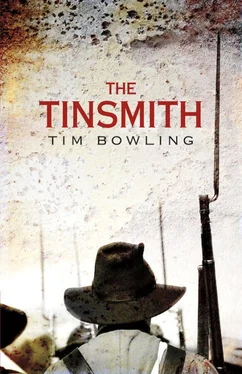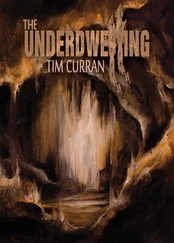But the image faded. Anson knew he was not prone to fancies. So he left the veranda and walked around the house. The glassy sound increased as he crossed the field toward the wharf, and, walking up the gangway, he recognized the sound as piano music. He could not have been more amazed if there had been a tripod set up on the planks with a grinning figure poised to vanish under a black cloth. In different circumstances, Anson would have clapped his hands with joy at the unexpectedness of life, he would have gladly succumbed to humility before the mysterious workings of a greater power. As it was, the sight he came upon only deepened his dread, for it struck him as grotesquely out of place, like seeing children emerge from a woodlot at Antietam. His mouth filled with the smoke of long-dead ashes, Anson approached the unlikely congruence in the moonlight. But with each step, one amazement gave way to another. For as he reached the source of the sound, he felt easier in his spirit, liberated from the poisonous miasma of his own musings.
The girl stood in the middle of the wharf, her thin figure in the moonlight slightly hunched, her elbows extended to either side. Bareheaded, her long, black hair gleaming, she faced the river. But he knew she could not see it, for her view was blocked by the large wooden crate that had been unloaded from the paddlewheeler some days before and that Anson had assumed contained cannery equipment. Off to her right, stepping rapidly forward and back, poised as if to run, stood the girl’s older brother, Edward, a reserved, handsome boy of twelve years. Near his feet lay the front side of the crate. Only when Anson had reached the end of the gangway and stepped onto the wharf did he notice that the boy held a hammer in one hand and a crowbar in the other. Even in the bright moonlight, his face looked ashen.
But Louisa did not lift her hands from the piano, which, as far as Anson could see, was a handsome instrument, the front of its high back ornately carved and almost gleaming, as if made of rosewood or some other special variety. The high notes swirled into the damp air, notes as delicate and pretty as the child who gave them life. Anson felt the tears come to his eyes. In such a remote and forlorn place, where beauty seemed mostly to exist in the surroundings, such music was a rare beneficence. Even the sucking of the tide at the pilings and the drone of the mosquitoes seemed quieted by Louisa’s playing.
The boy, only a few feet away, suddenly dropped the hammer and crowbar and hurried to his sister. He grabbed both her elbows from behind. She gasped and the music stopped.
“That’s enough, Lou,” he said and then added in a whisper, “You’re upsetting the doctor.”
Anson, however, was smiling broadly and letting the tears press against his lenses until he finally had to remove his glasses.
The brother and sister, blurred now, waited. The lost music had drifted away with the current, which gurgled and sucked at the pilings. Anson tried to hold on to the notes. In a quavering voice, he said, “That’s very pretty. Chopin, I believe?”
“I… I don’t know,” the girl said. She hardly even seemed a part of her surroundings, her face shone so vividly. Anson noticed that her fingers still played the air at her sides.
“You don’t know? Well, I suppose the composer doesn’t matter as much as the composition. But you play beautifully, Louisa. And at such a young age. How long have you been taking lessons?”
“She’s never even had one,” her brother said, and it was as if he’d turned all the moonlight onto the girl.
She lowered her eyes and said quietly, “Ed, you’re forgetting Mrs. Parmiter. She gave me a lesson.”
“That hardly counts. Two or three minutes was all it lasted before Mother came in and made you…”
The boy stopped and glanced over Anson’s shoulder in the direction of the house. He frowned and all the sudden enthusiasm over his sister’s talent drained out of his body as if he’d been punctured. Anson, still amazed by what he’d come upon, hurried to address the girl.
“Do you mean that you’ve never been taught to play? How is it that you can play Chopin?”
Her brother’s enthusiasm flooded back. His broad, handsome face beamed.
“She has a gift. Mrs. Parmiter said so. She said Lou was a… a… what was that word, Lou?”
The girl did not look up. Her fingers twitched a little, as if the last of the music was dying out in sparks.
“Prodigy, I suspect,” Anson said.
The boy nodded excitedly.
“And I suppose this is why there’s a piano on the wharf?”
Neither child responded. Very gently, the boy had taken hold of one of his sister’s hands. The tenderness of the gesture moved Anson deeply. These children had lost an older sister the summer before, their mother, still grieving, was clearly not well. Edward and Louisa, he saw at once, were close in a way that Anson, without siblings, had never known.
He smiled. “Your parents have recognized your talent and are encouraging it?”
“Oh, no, sir,” Edward said. “I don’t believe so. Mother doesn’t like her to play and Father thinks it will be good for her to play hymns in the house. Mrs. Parmiter wants to give her lessons, but I don’t think Lou will be allowed.”
Anson nodded slowly. He could almost feel the sadness seep back into his face. To combat it, he put as much cheer as possible into his voice.
“Well, now, something will have to be done about that. Louisa, surely you wish to take lessons?”
“Oh, yes! More than anything!” The girl pulled her hand free, then clapped both hands together. The sound sent all the notes she’d played whirling starward again.
Anson, who had almost forgotten the infectious sensation of joy, suddenly recognized the oddity of the situation. “Why on earth is this piano on the wharf? Why hasn’t it been taken indoors?”
The children blinked, as if they found the questions silly.
“But, doctor,” Edward said, looking toward the cannery buildings, “it’s the salmon season.”
Anson frowned. “Yes, I know, but why does that…”
Louisa, in a peevish voice, explained, “Father and Uncle have no time for anything except work when the salmon come.”
Feeling sorry for the children, and the girl in particular, Anson sought to recapture the joy of the moment before. With careful diplomacy, he thought he might be able to arrange piano lessons for the child.
“Perhaps I can help,” he said. “I will see what I can do. No promises, but a talent such as yours, Louisa, is a very rare and special gift. You understand that?”
The girl pushed her long hair back and revealed a hopeful smile. Anson could not see the tears in her eyes, but he knew they were present.
“But the Chopin?” he said, suddenly curious. “Where have you heard Chopin before? Does your family have a gramophone?”
The girl shook her head and replied in a trembling voice. “At the Parmiters. Mrs. Parmiter was playing it. From a book.”
From a book! Anson cupped his chin with his hands and murmured a brief paean in Latin. Finally, noticing the children’s confusion, he laughed and pointed at the piano.
“Well, Louisa, I cannot be satisfied with such a brief concert. Will you do me the pleasure of playing that piece again? I don’t know when I’ll have another chance to hear something so lovely.”
God truly works in mysterious ways, Anson thought, and as the music rose again, like a spring rain reversed and returned to the heavens, he could almost forget the murderous ways and the bloodied path he’d been forced to walk, away from the softly tolling certainties of his own childhood and youth.
The only thing interesting about a sunset, J.H. Craig mused as he stood on the wharf outside his New Westminster cannery, watching the agent’s dainty approach up the gangway, is that it tells fools to stop working. A seagull flapped out of the red sky and unfolded like a dirty newspaper on the planks a few feet away. It screeched and started to peck at something. Briefly admiring of the bird’s industry, Craig caught himself. He snarled at the bird and stomped toward it, waving his arms in small circles. Screeching louder, the gull flapped away. Craig bent to the red pulp of salmon flesh, disgust turning his lips thinner. Goddamned waste. Such a firm piece of fish belonged in a tin. He stood, gingerly brushing dirt off the piece, and watched the agent almost tiptoeing toward him. Belvedere Smith. A ridiculous name, but it suited an English gadfly more interested in fancy clothes than in the workings of a cannery. Still, he could be useful.
Читать дальше












